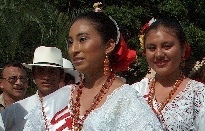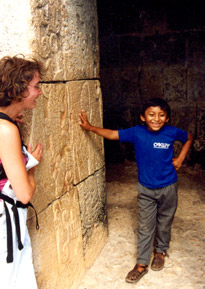|
In the aftermath of the "writing culture" critique of the 1980s, which were feed by the poststructuralist, feminist and Marxist assessments of the historical relativism and construction of Western sciences, “experimental ethnography” emerged as a general movement in anthropology that focused on issues of representation in ethnographic
writing. The primary meaning of experimental ethnography was the experimentation of writing ethnographies and the representation of cultural worlds, traditions, and things. In the middle of the 1990s, Castaneda founded the Field School in Experimental Ethnography as a means by which to develop a theory and practice of experimental fieldwork. This mode of ethnography was also transcultural in scope, research design, and conceptualization of research problems. This ethnography is grounded in the analysis of the performativity, intertextuality, and interdisciplinarity of ethnography, that is fieldwork. In this context, experimental ethnography began to be used to refer to the
theory and practice of fieldwork that it was developing in Pisté,
Yucatán.
As a new theoretical framework of ethnography, i.e., of methodology
and practices, there are many concepts and ideas that require extensive
discussion. For brevity, this section seeks to define experimental ethnography
in contrastive similarity to both applied and basic models of social
science. Experimental ethnography is a paradigmatic mode of fieldwork
in which given, prior and assumed knowledges are used and recirculated
in fieldwork activities, dynamics, and practices. The goal is to a)
has relevance to and for the communities with which research is conducted
and b) experiments with the very practices of fieldwork itself with
the aim of theorizing, and reconfiguring alternative forms of, ethnography.
On the one hand, experimental ethnography then has an affinity to applied
anthropology. Research in this model, however, is teleologically governed
by tangible objectives that can be generalized as having three forms:
a) effecting a “social change” in a (“traditional”)
community’s relationship to modernity/modernization; b) producing
knowledge for use in the creation of (governmental) policy or to inform
political action (of non-state collectivities); and, c) aiding communities
or collectivities to rediscover and revitalize one or more aspects of
their “cultural traditions” in the face of globalization,
Western hegemony, or national modernities. Experimental ethnography
locates the value of the anthropological intervention, however, not
in the teleology of the objectified results (e.g., social change, policy/political
action, or cultural revitalization), but in the process and, thus, valorizes
the actual dynamics of fieldwork as the primary locus where the “real-world”
relevance and significance are to be measured, evaluated, and appreciated.
In this regard, experimental ethnography is less like applied anthropology
and much more like the phenomenologically oriented ethnographies of
certain dialogical approaches, theatre anthropology, and strands of
feminist scholarship.
On the other hand, experimental ethnography has an affinity to “pure/basic”
models of research because of its positive view of, exploration of,
and contribution to theory and theoretical issues. Yet, the primacy
given to on the ground relevance of fieldwork in its very conduct and
processes, makes this quite clearly distinct from positivist and neopositivist
social sciences. Further, the conception of experimentation is dramatically
different and, with a little heuristic exaggeration, can be clearly
expressed: In this third emergent paradigm of experimental ethnography,
“knowledge” is not being “tested” for truth
to produce facts by a determined structure of fieldwork procedures that
processes these knowledge-facts (verifies, accumulates, and stockpiles);
instead, “fieldwork practices” are being “recombined”
to explore their utility in the recirculation of given knowledge in
a relevant manner by the very activity of the exploratory bricolage.
This exploration for utility is where a different notion of experimentality
enters into play. Based on the etymological meaning of “putting
out” (exo-) into danger or risk (peril), fieldwork itself is at
peril and is perilous locus of “failure,” i.e., shortcomings,
inadequacies, partial results, etc. Since, the subject and criteria
of “failure” in (all kinds of) ethnography is a huge topic
that must be reserved for a different occasion, note here that the experimentality
of this emergent kind of ethnography is a kind of bricolage of fieldwork
in which concepts, methods, techniques from various fields of art (scenography,
museumography, art installation, performance arts) are recombined with
the inherited methodologies of anthropology.
Basic publications and further readings on Experimental Ethnography
Invisible Theatre of Ethnography: Performative Principles of Fieldwork
The Past as Transcultural Space: Using Ethnographic Installation in the Study of Archaeology
Ethnography in the Forest: An Analysis of Ethics in the Morals of Anthropology
Between Pure and Applied Research: Experimental Ethnography in a Transcultural Tourist Art World
Art-writing in the modern Maya art world of Chichén Itzá: Transcultural ethnography and experimental fieldwork
Community Collaboration and Ethnographic Intervention
See also writings on SELT, School of Experimental Language Training
|




